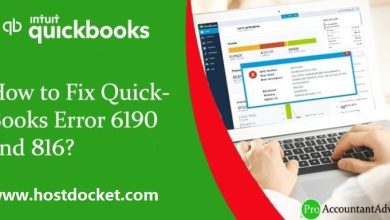How Small Businesses Can Get MSME Loans

The majority of Indian small business owners use MSME loans to infuse new beginnings into faltering enterprises. According to data from the Reserve Bank of India (RBI), the proportion of MSME loans in total commercial loans given in India increased by more than 50% during the previous five years. MSMEs play a significant role in the supply chain and account for about 40% of all exports from India. They are essential in creating jobs for the nation as well. They have almost 11 crore employees who come from different regions of India. Surprisingly, given that more than half of India’s MSMEs are found there, they have also contributed equally to the rural development of the nation.
These MSMEs, however essential to India’s sustainable development, face significant obstacles to their survival and development. The absence of adequate funding is one of their biggest problems. Because of this, the majority of them are unable to access modern technology and infrastructure and are restricted to their microcycle. According to research, 99% of MSMEs in India experience problems with their personnel, production, and efficiency. MSME loan is a solution to these problems.
What are MSME loans?
The term “micro, small, and medium-sized enterprise” (MSME) loans refer to loans that are provided to business owners by various financial institutions to pay for operational costs. Business firms that come under classifications including microenterprises, small enterprises, and medium enterprises can apply for these loans, according to the Government of India and the Reserve Bank of India (Exhibit I). Up to 15 years may be requested for an MSME loan.
How small businesses can get an MSME loan?
Every small business owner needs access to money at various points during the expansion of their enterprise. MSME loans are available to help them with their financial issues, but how will they obtain them is the question.
The following are the ways that small business owners in India can receive MSME loans:
Banks
When we consider applying for an MSME loan scheme of any kind, banks are the first place that springs to mind. They are the most established kind of lenders in India offering MSME loans to start-up companies. To apply for an MSME loan, one can go to any private or public sector bank. The most dependable and practical way for small business entrepreneurs to obtain funding is through banks.
However, there are certain drawbacks to obtaining an MSME loan from a conventional bank as well. First off, they have incredibly strict requirements for who is eligible to receive these loans. Additionally, their approval procedures for MSME loan applications require extensive documentation and verification. Second, banks typically charge higher than average interest rates for MSME loans. In terms of loan tenure and payback terms, they are also less flexible.
Non-Banking financial co-operations
Non-banking financial companies, or NBFCs, are organizations or establishments that provide services akin to those of a bank but lack a banking license. On January 31, 2021, there were over 9,500 NBFCs that were officially registered in India, according to details. The majority of these NBFCs offer MSME loans without collateral to small businesses.
Choosing NBFCs over banks to obtain an MSME loan has a number of benefits. The most significant is that, in contrast to banks, NBFCs typically have more flexible qualifying requirements for approving MSME loan applications. To make it simple for small business owners to get funding, they typically take a laid-back approach. Even with a slightly worse credit score and little business experience, one can still easily be approved for an MSME loan through an NBFC.
Additionally, NBFC interest rates are lower than bank interest rates. It’s because the Reserve Bank of India does not regulate the Prime Lending Rate (PLR), which is the basis for the interest rates set by NBFCs (RBI). As a result, they have more freedom and can change the interest rates on their MSME business loans to draw in more clients.
Conclusion
Small business entrepreneurs can grow and expand their companies with the help of an MSME loan. Thanks to features like quick disbursal, adaptable payback terms, and low-interest rates, MSME loans can help small firms manage their specific demands at different stages of their growth.




